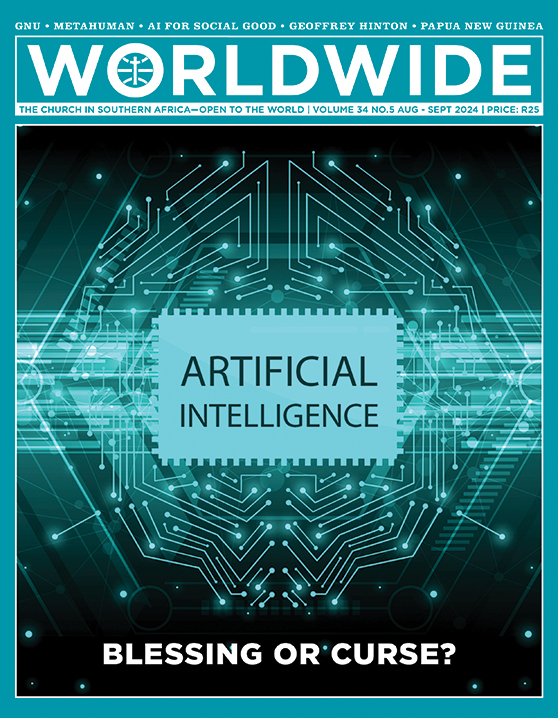
ARTIFICIAL INTELLIGENCE: BLESSING OR CURSE?
The image, according to Chat GPT, features the phrase “ARTIFICIAL INTELLIGENCE” at its centre, overlaid on a stylized depiction of a microchip and circuitry. This design symbolizes the integration of advanced AI technologies within modern electronic systems, emphasizing the critical role of AI in driving technological innovation and enhancing computational capabilities across various industries.
WORLD REPORT • NOOSPHERE
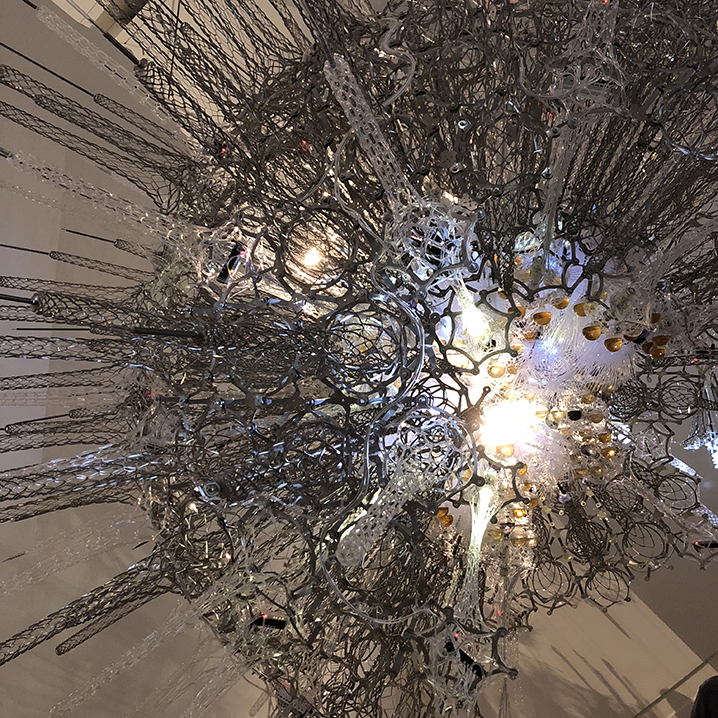
TOWARDS THE METAHUMAN
The world has become vastly complex and we struggle to make sense of it. We have entered the Noosphere—as coined by Teilhard de Chardin—a new level of mind brought about by mass media, computer technology and artificial intelligence (AI).
BY PROF. ILIA DELIO, OSF | THEOLOGIAN, WASHINGTON, DC SUMMARY OF THE AUTHOR’S ARTICLE: TOWARDS THE METAHUMAN IN 2024. (AVAILABLE AT: HTTPS:// CHRISTOGENESIS.ORG)
THOUGH WE are more connected today than ever in the history of humankind, we are fractured by tribalism and polarization. The wars in Gaza and Ukraine show our brutish, animal side of power and domination, while AI reflects our God-like capacity to transcend ourselves. We humans linger between the animal and the angel. If we step back for a moment and glance across the vast sweep of cosmic evolution, we begin to see that we are but a moment of matter in the unfolding spacetime universe.
Only a hundred years ago, humanity was still fragmented, living in relatively independent and isolated regions. Today, humankind is increasingly bound together by a dense network of communication links and trade systems. We are amid one of the most significant shifts in the history of humankind, as we transition from individual organisms into a superorganism or ‘metahuman’—as coined by Gregory Stock in 1973—brought about primarily by the merging of technology and biology. Much of our anxiety and conflict today is due to the fact that our systems are operating out of outdated principles that cannot support the new emerging reality of planetary, super-organismic life. The systems that support our daily lives are collapsing under the weight of the planetary metahuman.
Metahuman
Teilhard de Chardin anticipated the idea of the ‘metahuman’ almost a hundred years ago. He wrote The Human Phenomenon at a time of war, “from a sense of organic crisis in evolution, to free humanity from fear and despair so as to give new hope and heart for life” (Appleton-Weber 1999). The key to Teilhard’s thought is evolution which, according to him, is a general condition to which all theories and systems must conform, a “dimension” to which all thinking in whatever area must yield. Evolution is not a theory but the best description of biological life. Teilhard saw evolution as the rise of thought, with the human person as the most complex phenomenon of self-reflective thought; as the rise of consciousness giving birth to a new level of mind which he called the ‘Noosphere’. With the advent of the computer, he thought that we could become a planetary organism with a global brain, minds linked together through informational pathways. This is the basis of the metahuman.
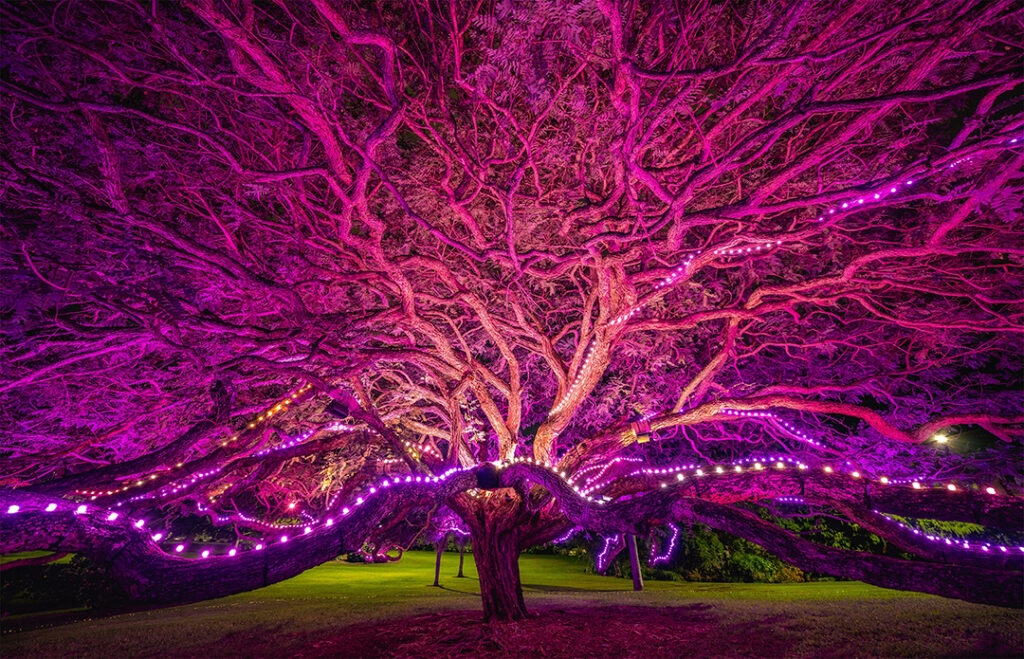
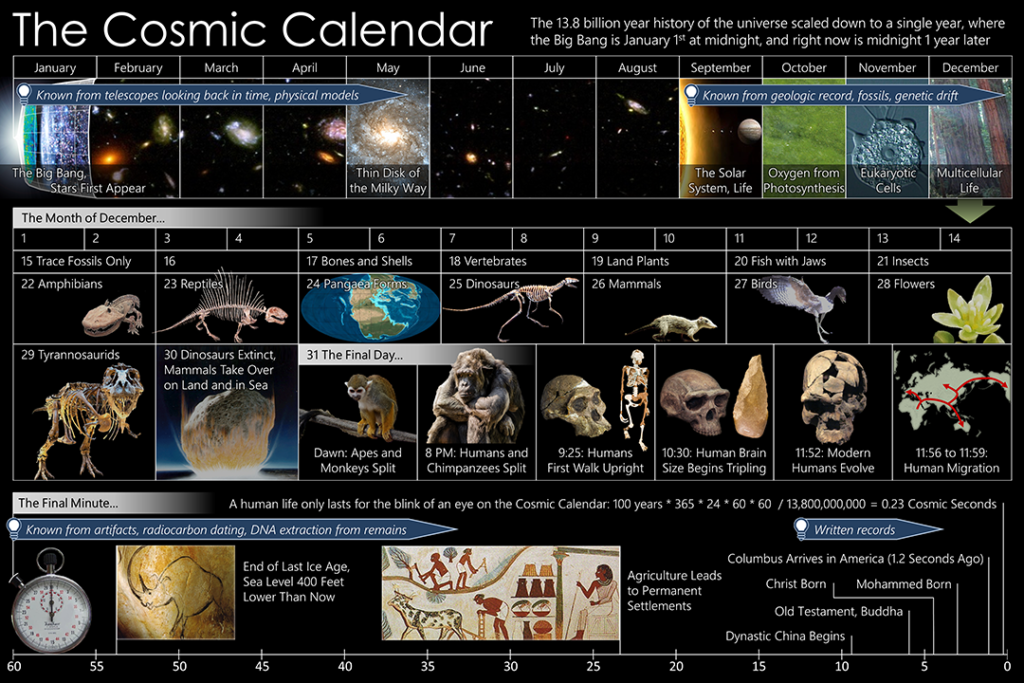
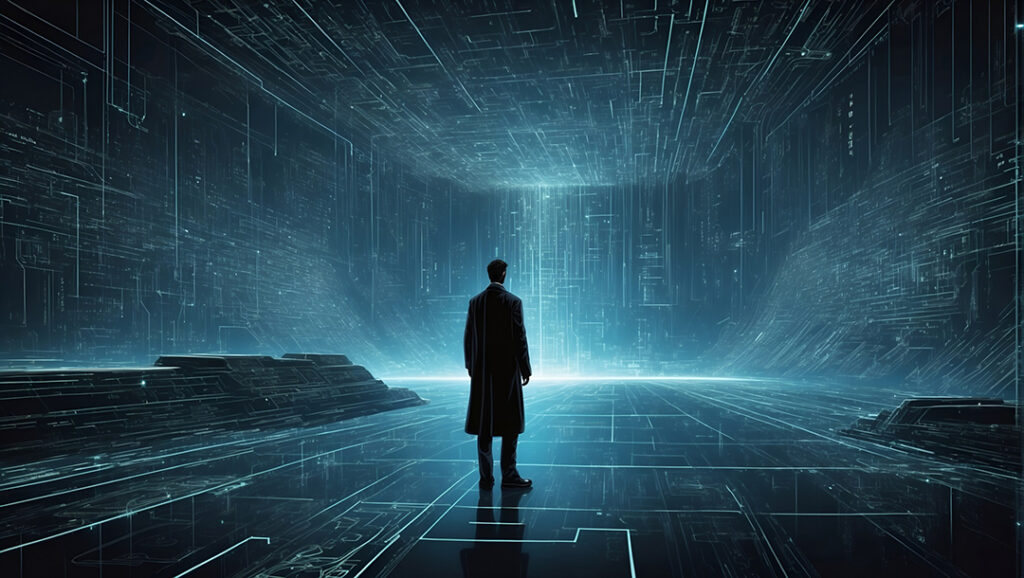
Computer technology and AI are speeding up evolution in which the metahuman is growing at an alarming speed. Technology is drawing humanity into a cohesive entity in which activities are highly interdependent. People wear clothing made on the other side of the world and eat food grown on distant farms. However, since we still think of ourselves as individual and separate, we lack an ethical framework for our deep global connectivity.
We are on the fast track to super-convergence—and this scares us. A new humanity is emerging through computer technology as a super-conscious, transpersonal cosmic being. The media expert Marshall McLuhan, in the mid-twentieth century, saw the potential within the human for wholeness and unity: “We must understand that a totally new society is coming into being, one that rejects all our old values, conditioned responses, attitudes, and institutions” (McLuhan 1969). A new world order is on the horizon. The prophets and seers of the late 20th century anticipated what scientists are now describing in terms of complexifying evolution.
The fact is, we have been on a rapidly accelerating trajectory of evolution since the last century. Teilhard de Chardin gave us a new paradigm of cosmic evolution, an entangled whole of God and world in evolution which continues to grow with complexifying consciousness. Despite the massive forces of destruction, both natural and human, evolution insists on greater consciousness. Teilhard called this active presence ‘the Omega principle’, an energetic presence of love opened to future fulfillment.
Interconnectedness
What does the metahuman mean for us? First, that we must shift our thinking from parts to whole, from individuals to systems and field energies, from persons in relationship to relational life systems. We must begin to understand ourselves as part of an ongoing wholeness in evolution. Second, the “whole” begins with the unity of mind and heart, the deepening of soul, and hence the deepening of spiritual energy that binds us to the wider fields of our existence. Third, we must begin to know the world as a complex, multi-faceted matrix of flowing life that is rapidly complexifying. It is time to wake up to our reality and to realize that there is no unique “natural” state to preserve because nature changes unceasingly.
AI is advancing our next level of evolution in the Noosphere. While the world seems to be falling apart, we are actually becoming more bound together through complex networks of information exchange. The social integration of people around the globe into some kind of “super-humanity” presupposes the further self-evolution of the whole human species towards a higher order. The personalizing direction of evolution means that the process cannot terminate in the human person who is still in need of improvement; rather evolution is in the direction of the New Person.
Power of Love
How to orient our lives in our complex hyperconnected world is our challenge. Teilhard spoke of love as the core energy of the universe and said that the way out of early cosmic termination is by yielding to the power of love because what we really love is always ‘another’ ahead of us. He wrote: “There is only one real evolution, the evolution of convergence, because it alone is positive and creative” (Teilhard de Chardin 1971: 87). If life develops in the direction of a greater union, then the new level of humanity must be on the order of love. “Society will inevitably become a machine if its successive growths do not culminate in Someone,” that is, in a deeply personal center of love (Teilhard de Chardin 1969).
While the world seems to be falling apart, we are actually becoming more bound together through complex networks of information exchange.
Humanity is moving into a new environment, into a world that is being born instead of a world that is, with a new relationship between matter and spirit, a new humanism, and a new understanding of God—complementary movements which mark the beginning of a new era for humankind. Teilhard “expressed with clarity and forcefulness that we are one humanity, with one origin, and one destiny. We are also a group of humans that have not yet reached maturity in terms of our possibilities. Our immense problems somehow resemble the turmoil of youth” (King 2018). All of humankind bears a profound sense of responsibility for the shape of its own future, and humanity’s future must be developed in close interrelation with all forms of life, with the whole of nature in its global and planetary dimensions.
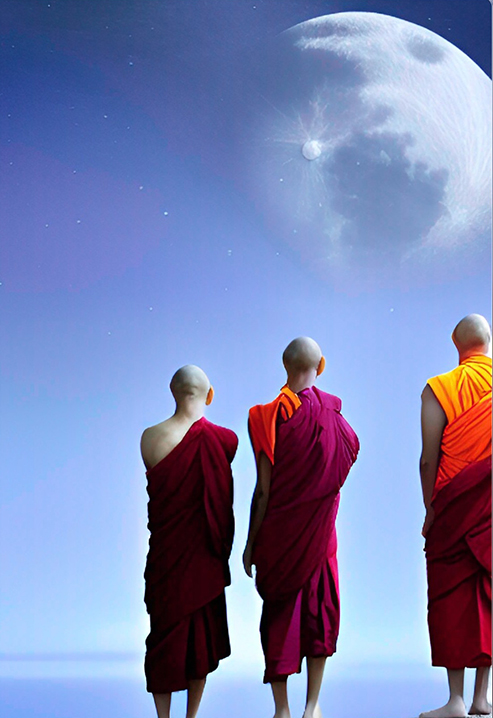
How can we be ‘architects of the future’? How can we develop a better, higher life for planetary life or what Teilhard called planetization? He reflected on the conditions and criteria by which human beings might become more united—economically, politically, and spiritually. His book The Future of Man carries the motto: “The whole future of the Earth, as of religion, seems to me to depend on the awakening of our faith in the future” (ibid, 144).
Faith in the World
He combined faith in the future with faith in the world, in the further development of human beings, and in the greater global collaboration and unity among all peoples (Teilhard de Chardin 1971: 121.175). The world is not a place of evil and despair; a tormented place of endless violence, but a place of the Absolute: religion is intrinsic to evolution.
“If I were to lose my faith in Christ, my faith in a personal God and my faith in spirit, I would continue to believe invincibly in the world. The world, when all is said and done, is the first, the last, and the only thing in which I believe. It is by this faith that I live. And it is to this faith… that I shall surrender myself at the moment of death” (ibid, 99).
Teilhard spoke of a new threshold in the development of human consciousness and organization, not simply a search for the continuity of life or mere survival; a development of life to a higher stage which involves an effort to create a higher form of life, a more unified humanity. He was convinced that despair cannot provide the necessary energy for action, only hope can do so. Humanity now bears full responsibility for its own future; both education and scientific research play a great role in this. It is also an immense challenge—the kind of future we will get depends to a large extent on the quality of people who shape it. He emphasized the need for future-oriented, future-affirming beings with a wide, open awareness, who have the energy of thought, the vision and perception to recognize the problems of the future and find their solutions, and who possess the necessary energy and will to action for putting them into practice.
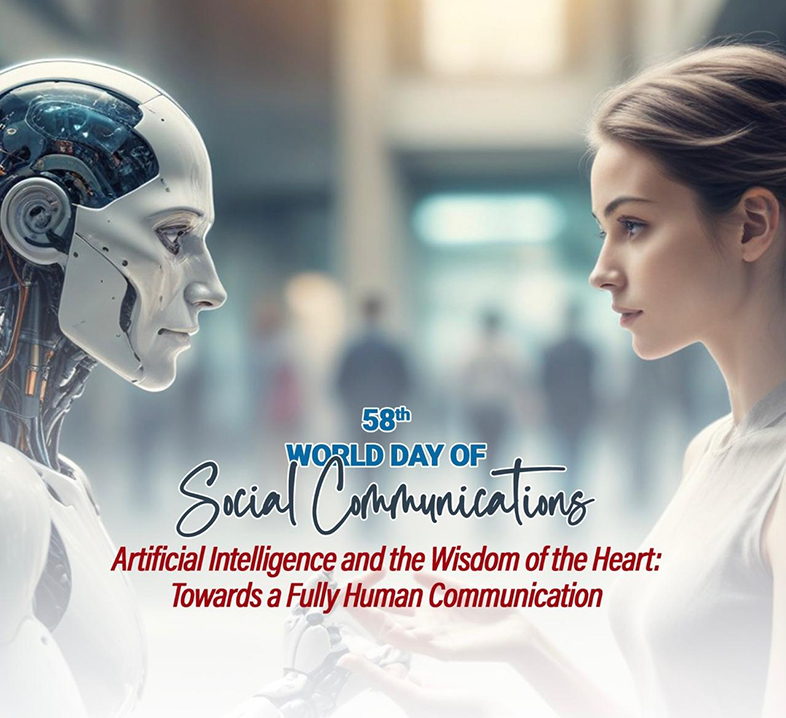
Expanding Horizons
We must widen our minds and expand our hearts. Now it is not the time to shrivel up and declare defeat. We must find within ourselves the energy that gives us a zest for life and to actualize love through our creative gifts and imaginations. War is a terrible thing but so is defeat. To give up in the face of our immense and complex world, as if we are helpless, is to miss the opportunities open to us every minute of every day. We are not simply to live, but to “super-live”: to live a fuller, better, more rewarding life shared with our fellow human beings. We live in a world of infinite potential, and we must choose whether or not we will create a world of love or settle for a world of hate and violence. If love is our deepest reality, then every breath of every day we must choose to love. In our highly charged world of political opposition, fake news and sheer hate, love seems antiquated or irrelevant. Love is the reason we are all here to begin with and it is this truth alone that makes us desperate for God.
“Where there is no love, put love and you will find love.” (St John of the Cross)
A loveless world is a violent world which cannot be sustained indefinitely. The metahuman expresses a deep impulse within the flow of love for greater unity and wholeness. Teilhard thought that God and the world form a complementary whole so that fulfilment of the world in love would be fulfilment of God’s own life. This may be realized billions of years into the future, perhaps in union with other forms of intergalactic life, but at this moment each one of us contributes to the completion of God. Love is no longer an option but a responsibility; it is not about personal fulfilment but contributing to the world soul. We may struggle with love, fail in love, or feel loveless but Saint John of the Cross gave us a very simple way forward: “Where there is no love, put love and you will find love.”

